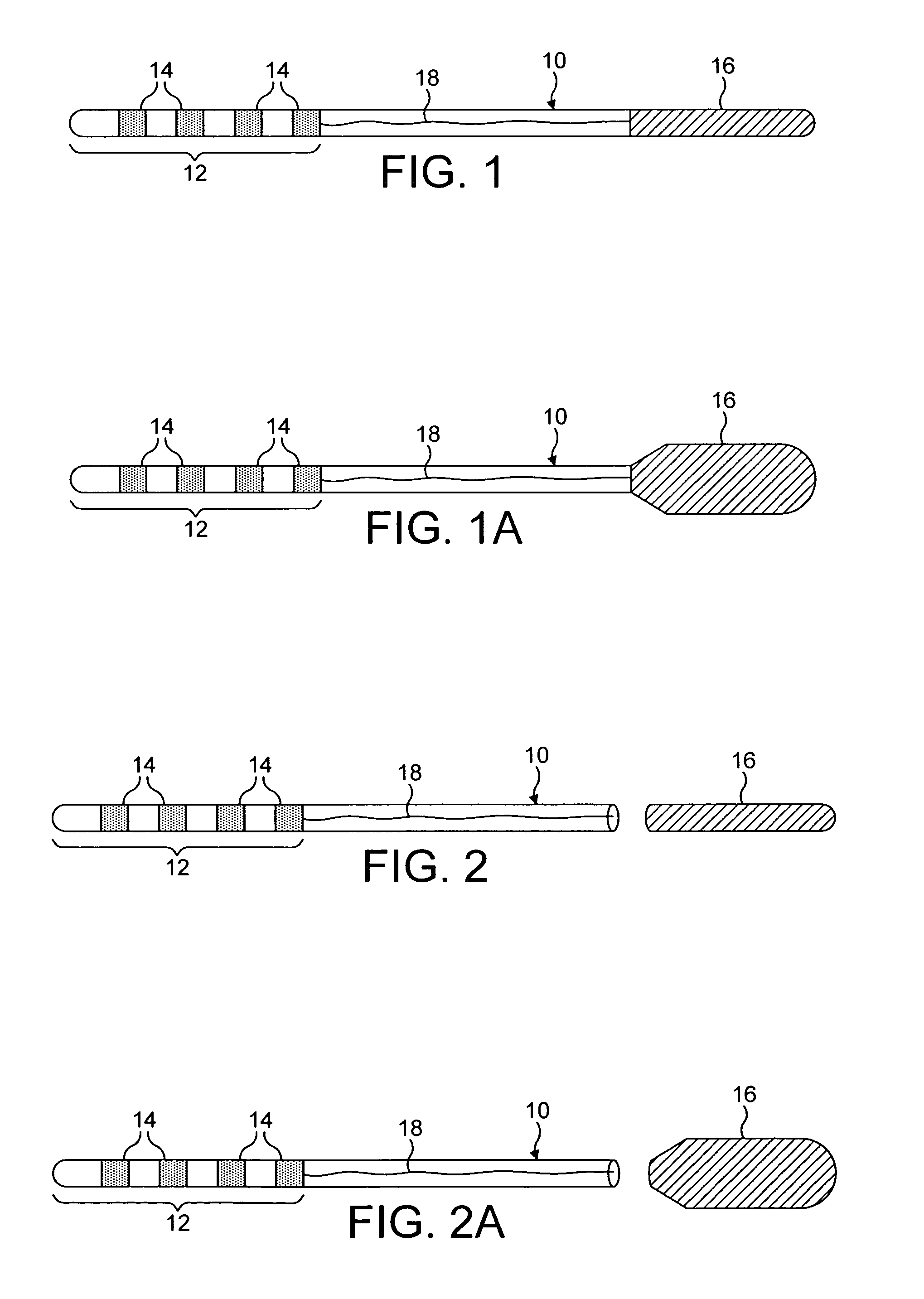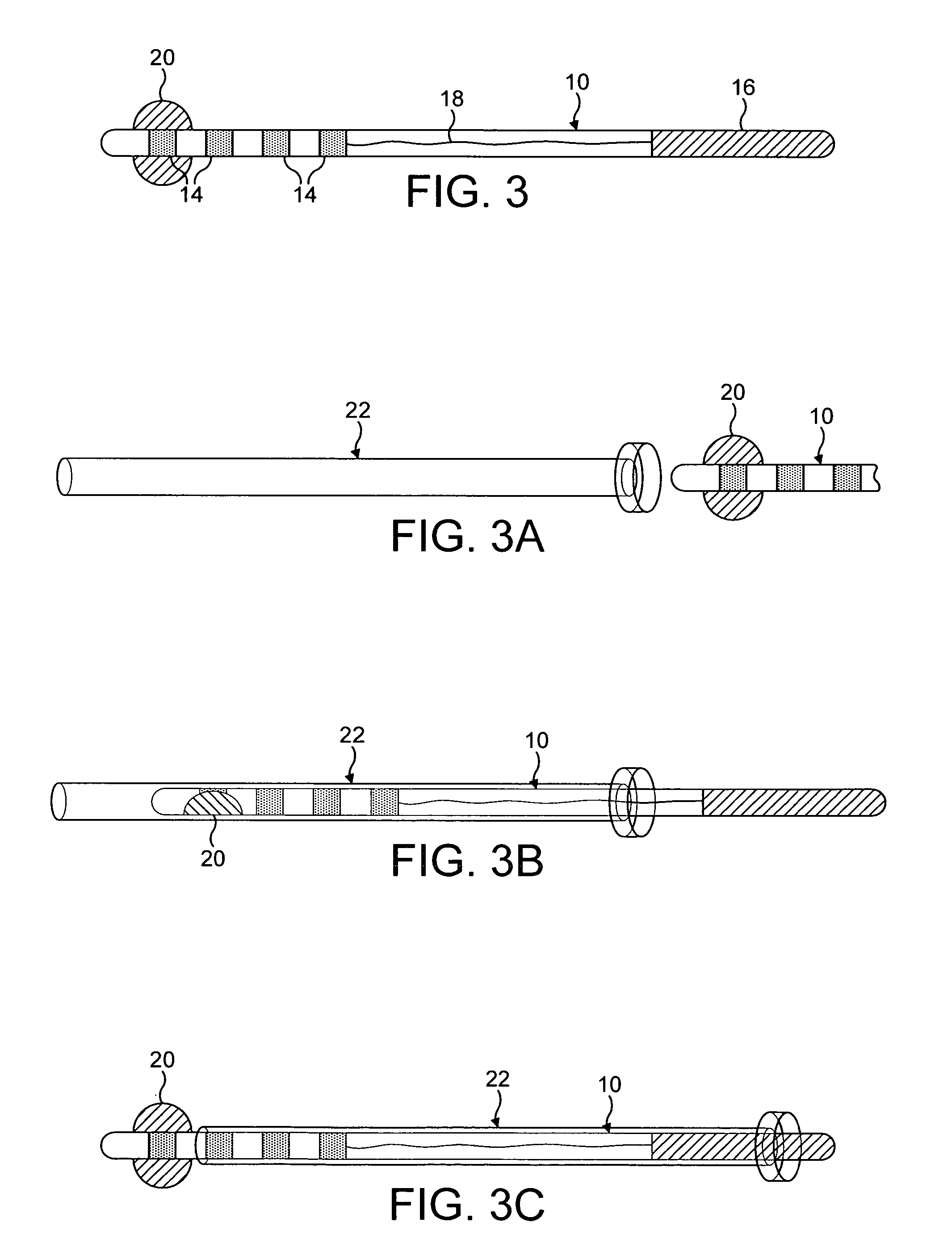Peripheral neurostimulation
a peripheral neurostimulation and neurostimulation technology, applied in the field of peripheral neurostimulation devices, can solve problems such as less than satisfactory availability of existing systems
- Summary
- Abstract
- Description
- Claims
- Application Information
AI Technical Summary
Benefits of technology
Problems solved by technology
Method used
Image
Examples
Embodiment Construction
[0025]FIG. 1 and 1A show diagrammatically two embodiments of a device 10 which is a self-contained permanent or long-term unit for neuromodulation in the management of chronic pain and for cosmetic applications in accordance with the invention. It comprises a stimulating zone 12 provided with one or more electrodes 14, and an integral control unit 16 electrically connected by means of suitable wires 18 to the stimulating zone 12. The control unit 16, which incorporates a self-contained power source, is capable of supplying an electrical stimulating signal to the electrode(s) 14.
[0026]The body of the device in FIG. 1 has a generally cylindrical form with a diameter of 1.2 to 1.5 mm. It is between 20 and 70 mm in length so that it can be inserted into a patient using a semi-rigid stimulating needle (similar to that shown in FIG. 3).
[0027]In use the stimulating needle is used to identify the most effective position for the device. The needle is inserted close to the muscle or nerve in ...
PUM
 Login to View More
Login to View More Abstract
Description
Claims
Application Information
 Login to View More
Login to View More - R&D
- Intellectual Property
- Life Sciences
- Materials
- Tech Scout
- Unparalleled Data Quality
- Higher Quality Content
- 60% Fewer Hallucinations
Browse by: Latest US Patents, China's latest patents, Technical Efficacy Thesaurus, Application Domain, Technology Topic, Popular Technical Reports.
© 2025 PatSnap. All rights reserved.Legal|Privacy policy|Modern Slavery Act Transparency Statement|Sitemap|About US| Contact US: help@patsnap.com



